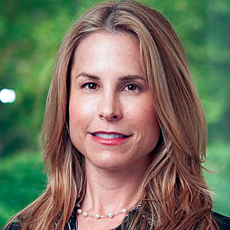
As the seniors housing market continues to grow and attract record levels of new investment, lenders are taking an ever-closer look of the deals they finance — and the partners and operators they work with. In order to understand why this increasing scrutiny is necessary — how a quality operator makes a deal stand out, and how this trend will evolve in the long run — it’s helpful to look at one of the biggest movers in the industry and a recently completed transaction.
Kayne Anderson Real Estate Advisors (KAREA) is part of Kayne Anderson Capital Advisors, a private equity, real estate investment firm with $30 billion in assets under management. They are particularly focused on seniors housing, medical office, student housing and self-storage—with the bulk of their recent investment activity concentrated in the healthcare space.
Capital One recently closed a deal with KAREA to provide financing for the acquisition of Sentio Healthcare Properties, a public, non-traded REIT. Capital One provided two loans — a $251 million bridge loan and a $300 million Freddie Mac seniors housing revolving credit facility.
“We believe this is a true best-in-class portfolio,” said Max Newland, Managing Director for Healthcare Real Estate at KAREA. “This acquisition will further solidify Kayne Anderson’s position as an industry leader in the healthcare real estate space while positioning us to continue generating strong returns for our investors.”
Throughout the course of the transaction, we worked closely with Newland and his team to understand how this portfolio of properties fit within their strategy — and what made it stand apart from their perspective.
“This portfolio is ripe with opportunity to create additional value through property renovations, community expansions and other operational enhancements — all items we typically look for when acquiring real estate,” he said. “In addition, we found the footprint to be a perfect fit for our current platform. We were able to gain immediate exposure to several new, strategic Northeast markets, while picking up two communities in a market like The Villages, a notoriously high-barrier-to-entry market within a state where we are extremely active.”
A growing industry attracts new players
While the overall market dynamics and long-term outlooks are strong for seniors housing, an abundance of available capital has also attracted a wide variety of new industry players on the development and operations side. In addition, a rise in new construction in some markets requires lenders such as Capital One to remain diligent and stay focused on the long term.
“I joined Kayne Anderson in 2013 when the firm made the strategic decision to focus on healthcare real estate as an asset class,” said Newland. “Since that time, we have invested approximately $2.7 billion across 9,946 units of seniors housing—primarily independent and assisted senior living.”
In Newland’s, and Kayne’s, view, the current supply and demand imbalance that the seniors housing industry is experiencing is rare in comparison with other real estate asset classes.
“We believe this dynamic will be a catalyst for the industry to transition from a highly specialized sub-sector of real estate to something more mainstream,” he said. “We are witnessing it currently through the increased flow of new institutional capital to the sector, which is also attracting new developers and property managers to the sector.”
Best in class operators
Due to the large number of new players — all with varying levels of experience — there is one factor that KAREA and Capital One value above all else when reviewing potential investments: the quality of the operators.
“Our model is operator-centric,” Newland said. “We’ve found that it leads to stronger relationships and, in turn, more attractive investments. This applies to our entire pipeline—acquisitions, redevelopment and ground-up construction. Our current development/redevelopment pipeline stretches from California to Vermont. Every deal is different with one exception — the project must be attached to a best-in-class operator.”
Why does this matter in the long term for the seniors housing market? As the demographic tsunami of seniors begin entering seniors housing over the next 20 years, they will have strong opinions about how properties are designed, and how they function and fit within their lifestyle. They will have more options to choose from and more power to shape the operations of seniors housing communities. The very best property managers, developers, marketers and investors will be aware of and responsive to these expectations and will adapt accordingly, making them more successful in a competitive environment.
As market dynamics continue change, it’s critical that lenders and investors be patient and take a long-term view of the market. Working with a partner you trust, with a strong track-record — be it a lender, investor, owner, operator or developer — is a make-or-break decision and can strongly influence the success of each investment.
Kristen Ahrens is a managing director at Capital One Healthcare.



